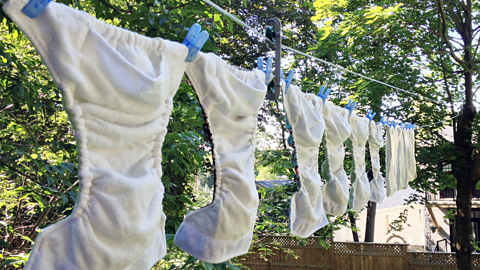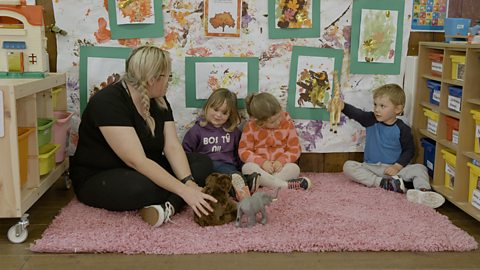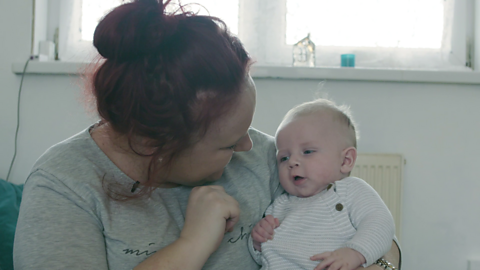WeÔÇÖre all feeling the squeeze due to the cost of living crisis. So finding ways to make your money go further - especially when youÔÇÖre buying essentials for your kids like nappies, food and school uniforms - is a must. Luckily there are some practical things you can do to help your family finances.
Here are 9 tips for coping with the rising cost of living and a young family.
1. Work out your budget
The first step could be looking at your family finances and checking you have the money to pay all your bills and cover all your essentials. This can feel quite scary, especially if youÔÇÖre going into debt each month, but there is help out there. Sue Anderson from StepChange says: ÔÇ£If youÔÇÖre struggling to see where savings might be possible, making a budget can be a great place to start. ItÔÇÖll allow you to see where your money is going each month, identify which bills are the most important and see where you could potentially cut back.ÔÇØ
If youÔÇÖve not done a budget before,

2. Check which benefits you can claim
From universal credit to maternity and paternity pay, there are lots of benefits and entitlements available for families. And you may be eligible for benefits that youÔÇÖre not currently claiming. Dennis Hussey from the Money Advice Service says: ÔÇ£It's worth checking that youÔÇÖre receiving everything you may be entitled to. You can also look for help with essential bills or search for charities who offer grants to cover the cost of white goods like washing machines.
And donÔÇÖt miss out on child benefit, which will see you receive ┬ú21.80 a week for your child, and an extra ┬ú14.45 a week for any additional children. ÔÇ£You can claim if youÔÇÖre responsible for bringing up a child who is under 16 or under 20 if they stay in approved education or trainingÔÇØ, explains Sue. ÔÇ£Only one person can claim child benefit for a child but there is no limit to how many children you can claim for.ÔÇØ
if you have children.
3. Save money on nappies
so the cost can quickly add up. It could be worth shopping around to get the best deal on your preferred brand.Or if you and your baby have less of a preference, then switching from branded nappies to supermarket-own could be a way to save.
Reusable nappies are also an option that could help you to cut costs in the long run if you can afford the initial spend, as well as having an environmental impact. Some local councils will give you either nappy vouchers or free nappies as part of a campaign encouraging parents to switch to reusables, so itÔÇÖs worth asking your health visitor to see if your local council are running one of these schemes.

4. Find new ways of cutting food costs and food waste
Looking for ways to cut the cost of your familyÔÇÖs weekly shop? is a free food sharing app used by over a million people in the UK. Users take photos of any leftover food - from loaves of bread to fresh fruit and veggies - and post a photo, along with where theyÔÇÖre based. You can then search for anyone giving away free food near you.
Another popular app is which is trying to reduce food waste by allowing shops and restaurants who sell off their leftover food rather than binning it. You can search in your local area for restaurants and stores taking part then order a bag of food at a reduced price. These could contain anything from tinned foods to sandwiches and pastries.
First suggested by Martin Lewis, you could try the switching from brands to supermarket own-brands, or down a level from standard to value ranges. If you find cheaper alternatives, you could save plenty on your weekly shop.
5. Identify your priority debts and seek advice
Dennis says: ÔÇ£If youÔÇÖre struggling with bills, identify your priority debts. These should be those that can cause more serious problems if you donÔÇÖt do anything about them, such as rent, council tax and energy. Creditors, including landlords, councils and energy suppliers may offer extra support if you make them aware you are struggling. Communication is key to this. You could speak to a free debt advice service like where advisers can take you through your situation and work out the next steps.ÔÇØ
6. Look at your free childcare entitlements
Childcare costs parents up to 65% of their weekly take-home pay, according to So make sure youÔÇÖre getting all the childcare help that is on offer.
which works out as 15 hours a week. Some families are eligible for more ÔÇô - so make sure youÔÇÖre claiming what you can.
Sue says: ÔÇ£You can get help paying for childcare if youÔÇÖre using a registered childcare provider, which is known as ÔÇÿapproved childcareÔÇÖÔÇØ. Visit the website to check whether your childÔÇÖs nursery, preschool or childminder is covered.
If you live in Wales, you could get
In Scotland, (this works out at around 30 hours a week of funded childcare in term time.) Some 2-year-olds are eligible too.
In in Northern Ireland, parents of 3 and 4-year-olds are entitled to at least 12.5 hours a week of funded preschool education and there are proposals to raise this to 22.5 hours per week in future.The GovernmentÔÇÖs is helpful to see what you might be eligible for.

7. Consider changing how you cook family meals
With energy bills so high, weÔÇÖre all looking for cheaper ways to make family meals. using a slow cooker or microwave uses less energy than your oven.
Check out our ┤¾¤¾┤½├¢ Food slow cooker recipes for low-energy cooking inspiration.
Batch cooking is another great way to make your money go further. Bulk buying ingredients generally works out cheaper and also means less impulse buys at the supermarket.

8. Buy (and sell) second hand
From toys to winter coats, you can buy lots of things you need second hand and at a fraction of the price. Search local charity shops or look on community selling apps and auction sites. You can also sell things your child has grown out of or no longer plays with.
You could put the money you make from this into a Christmas fund to help with the extra costs of presents and food in December.
9. Check if your child is eligible for free school meals and school uniform grants
If your child is reaching school age, then looking into free school meals and uniform grants could be a huge financial help, especially with food costs soaring and parents of primary school children spending an average of £315 a year on school uniform..
Sue says: ÔÇ£The process for applying for free school meals will vary depending on where you live. Enter your postcode on the website where you will be redirected to your local council to find out how to apply. Some local councils also offer school uniform grants to those on low incomes.ÔÇØ
Article published on the 21st October 2022.
As links to external organisations aren't run or maintained by the ┤¾¤¾┤½├¢ we can't guarantee their content ÔÇô nor are we endorsing them as a product.






